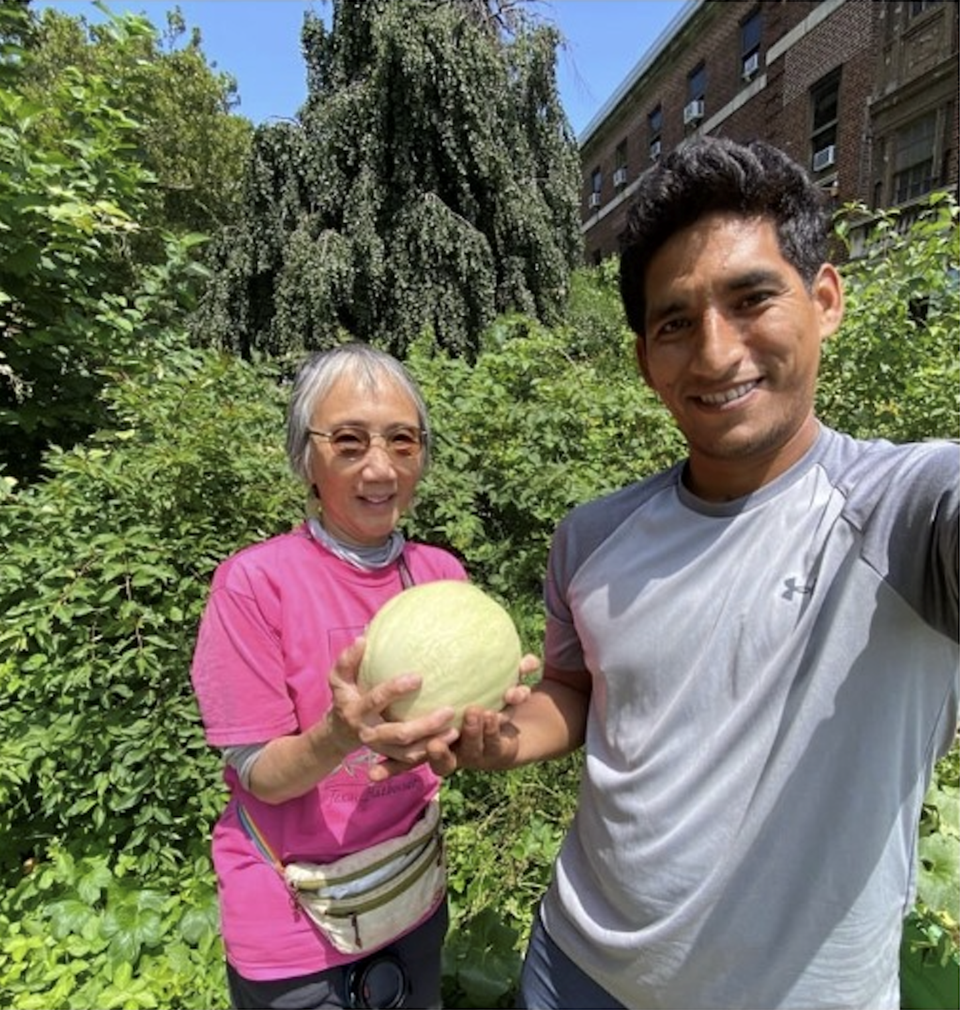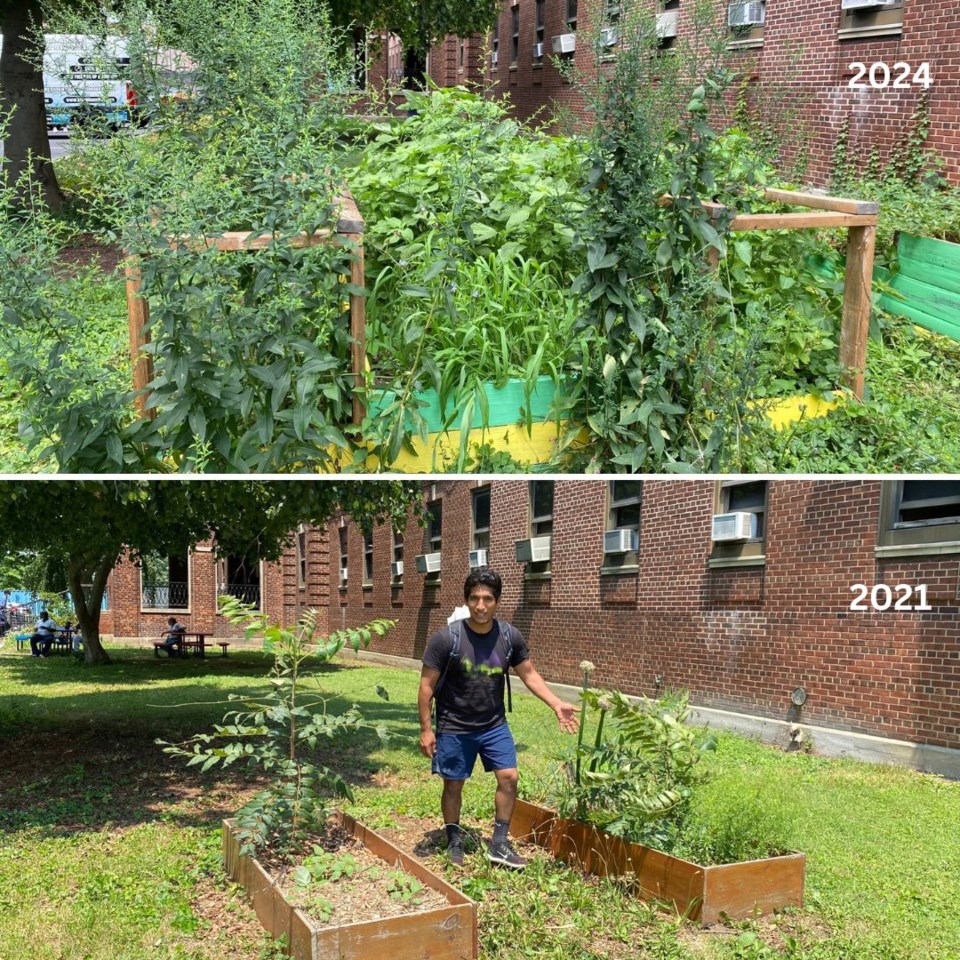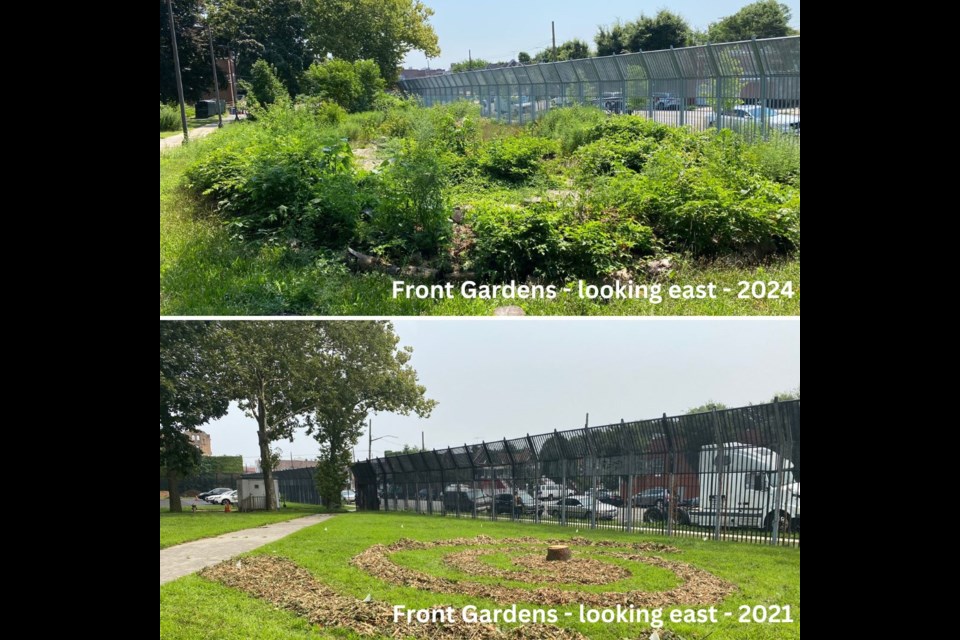The garden on the grounds of the East Flatbush Safe Haven, a homeless shelter in Flatbush, was once an oasis of native plants. Now, it is being destroyed.
Volunteers who nurtured the garden for years say it lowered temperatures in the area, which has little greenery, and provided shelter residents with the healing benefits of nature.
However, staff at Breaking Ground, the nonprofit that operates the shelter, began leveling the garden on July 31, according to volunteers. The volunteers, who had a positive relationship with the nonprofit for years, say their relationship began to sour after a management shift at the shelter.

Samuel Pressman, one of the main volunteers, shared his dismay: “My number one goal is to help people get in touch with nature and observe how it can benefit them, how it can help heal them, and help motivate them to be more positive,” said Samuel Pressman, one of the main volunteers who created the garden.
“For me, gardening is very sacred [...] It was traumatizing to me when it was clear cut in a very sneaky, kind of evil way.”
In 2021, volunteers initiated an eco-rehabilitation project on the seven-acre grounds of the former Kingsboro Psychiatric Center, where the shelter is located. Their aim was to beautify the grounds, connect residents with nature, and bring ecological benefits to the area. They planted about 150 species, over 90% of which were native, in five orchards and ten planters.
The safe haven shelter has fewer restrictions than standard shelters, allowing vulnerable New Yorkers to access housing, medical care and case management without fearing eviction. Although the nonprofit initially welcomed the volunteers and their project, staff later claimed the garden was removed because it created unsafe, hidden spaces for residents.
The eco-rehabilitation project was led by Marion Yuen, founder of The MYA Group, a sustainable infrastructure consulting firm, and Pressman, founder of Samuel’s Food Garden, an organization dedicated to expanding urban agriculture.
“I’m about ecological restoration and bringing nature back to the city,” said Yuen. “Greenery has been proven to not only provide beauty, but plants have a beneficial effect on health. A lot of the clients put their faces by the bushes, touch them, and there’s a whole body of literature showing that has a beneficial effect.”
Yuen and Pressman emphasize that their work is not just about sustainability or aesthetics, but also about promoting physical and mental health through a deep connection with nature. They were devastated by the loss of the garden, which they had hoped would continue to benefit shelter residents.
Initially, Breaking Ground celebrated the garden's success, even promoting it on social media as "therapeutic and healing." The garden significantly reduced temperatures during heat waves, with a difference of 8 degrees Fahrenheit between the garden and a nearby parking lot.

The garden was created from soil from the Clean Soil Bank and compost from the DSNY’s Composting Facility. The New York Restoration Project and other organizations donated plants, according to volunteers.
The project was so successful that Breaking Ground asked the volunteers to replicate the model at other facilities. However, after a new director took over the shelter in January, the volunteers were informed they would no longer receive funding or be allowed to bring in outside help. Without these resources, the garden became overgrown, leading to its removal.
On July 31, staff began cutting down plants, including grapevines and sunflowers. Yuen and Pressman say they have been barred from the facility, where some of their supplies remain.
The volunteers have entered into mediation with Breaking Ground, facilitated by the New York Peace Institute, to address the situation and discuss how to move forward.
Breaking Ground did not respond to requests for comment.
“The punishment for the gardens developing so lushly, so well, and luring [residents] to want to spend time in them, led to them having a ‘management issue' with residents not being visible all the time,” said Pressman.
“So it was kind of a recipe they didn’t know they were setting up, but they attacked the gardens instead of the real issue, which is that they really don’t know how to manage the residents properly.”




